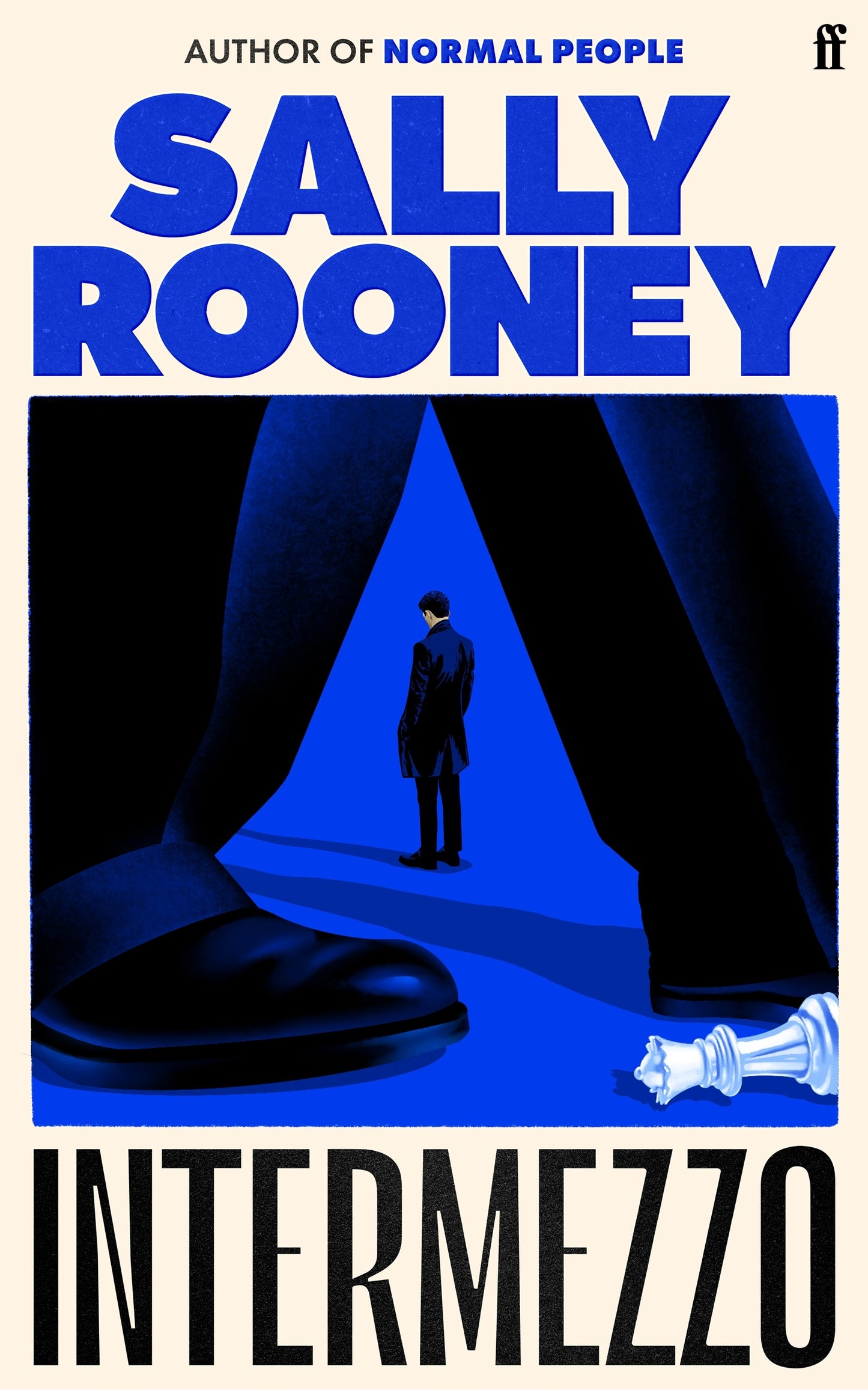Sally Rooney
Intermezzo
Intermezzo
Couldn't load pickup availability
Susan Midalia's Review
International bestselling author Sally Rooney’s fourth novel is in my view her best yet: a psychologically complex, deeply moving exploration of the lives of two radically different, frequently antagonistic brothers. Set partly in contemporary rural Ireland and partly in Dublin (its opening sequence echoes, thematically and stylistically, James Joyce’s famous Dublin novel Ulysses), the novel focuses on the outer and inner lives of its two main characters.
Peter Koubek, a thirty-something suavely successful lawyer, is romantically entangled with two women, while his twenty-two-year-old brother Ivan is a nerdy loner whose promising career as a chess player is in serious decline. But the self each brother presents to the world is radically different from the inner life often unrevealed to others. While Peter’s success with women is symbolised by his affair with the much younger, free-spirited student Naomi, he is in reality anxious that his peers will disapprove. He also veers between guilt and frustration in his attitude to Naomi, and to Sarah, his old love from university days; and while he is well-read and cultured through dint of enthusiastic hard work, he remains resentful of his privileged peers. By contrast, the socially awkward, sexually inexperienced Ivan is in reality a mature young man: he has no concern for status; is staunchly defiant of society’s judgement of his relationship with the much-older Margaret; and never wavers in his belief that they are right for each other, and in the happiness it offers to both of them. At the heart of this beautifully written, intelligent novel are the contradictions of sexual and familial love: the misunderstandings and realisations, manipulativeness and honesty, profound disappointments and expansive joys.
Intermezzo is also fundamentally concerned with the struggle to find a sense of wholeness after the fracturing of a self. Both brothers in their different ways must deal with the death of their father, while Peter must contend with the loss of a fulfilling future with the young woman he was planning to marry. Sarah, now a respected academic, has been so badly injured in an accident that she experiences chronic pain and is unable to have sex. But if Sarah represents the life of the mind, the sexually appealing Naomi is all body, while Margaret symbolises a healthy combination of an enquiring intellect and sexual desire. While this might sound like a reductive gendered schema, the novel once again subtly reveals contradictions in the characters: the three women’s later thoughts and actions will surprise, challenge and delight you, as will the novel’s conclusion (no spoilers, except to say that I cried).
I’ll also confess that I was never a great fan of Rooney’s highly acclaimed novels Conversations with Friends and Normal People. While I appreciated the skill with which they scrutinised class differences and evoked the mood of a young generation, Rooney’s new novel is much more nuanced in its understanding of the inner life, and more ambitious in its intellectual scope. It’s also a thoroughly engrossing narrative about the obstacles to self-understanding and an understanding of those we might hope to love. Intermezzo will be available in September; you are welcome to pre-order a copy at the Lane.
Publisher's Review
An exquisitely moving story about grief, love and family, from the global phenomenon Sally Rooney.
From the author of the multimillion-copy bestseller Normal People, an exquisitely moving story about grief, love and family.
Aside from the fact that they are brothers, Peter and Ivan Koubek seem to have little in common.
Peter is a Dublin lawyer in his thirties - successful, competent and apparently unassailable. But in the wake of their father's death, he's medicating himself to sleep and struggling to manage his relationships with two very different women - his enduring first love Sylvia, and Naomi, a college student for whom life is one long joke.
Ivan is a twenty-two-year-old competitive chess player. He has always seen himself as socially awkward, a loner, the antithesis of his glib elder brother. Now, in the early weeks of his bereavement, Ivan meets Margaret, an older woman emerging from her own turbulent past, and their lives become rapidly and intensely intertwined.
For two grieving brothers and the people they love, this is a new interlude - a period of desire, despair and possibility - a chance to find out how much one life might hold inside itself without breaking.
Share


